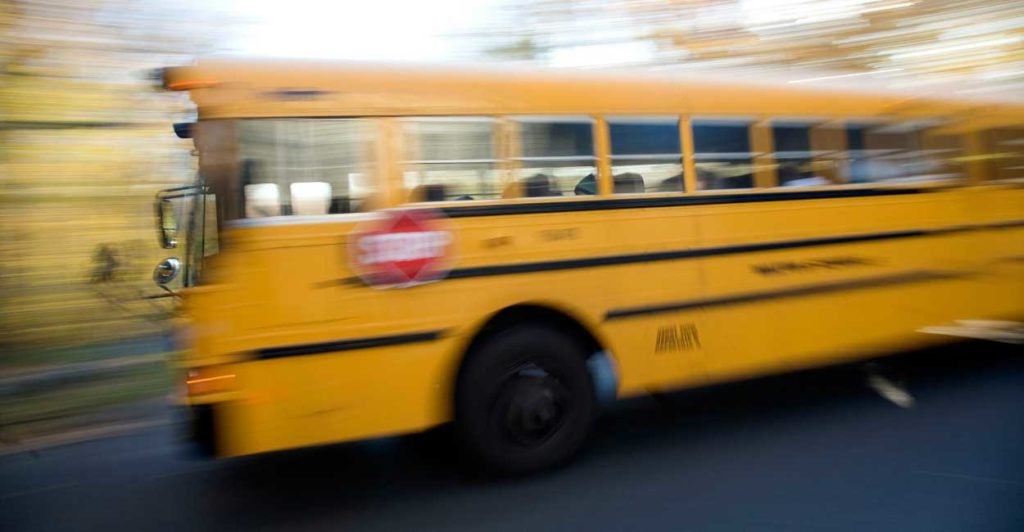Giving parents control over their child’s education through personalized education savings accounts has transformed the lives of numerous underserved students.
The story of Faith Kleffel exemplifies the promise of enabling children to access the type of education options that meet their learning needs.
Faith, who has Down syndrome, uses an education savings account (ESA)—known as a Gardiner Scholarship in her home state of Florida—to access learning options that work for her.
October is Down Syndrome Awareness Month, and Faith’s story highlights how transformative education savings accounts can be for all families, and particularly for those families of children with special needs. Education savings accounts are changing the lives of extraordinary students, like Faith, by allowing them the opportunity to pay for the education that best suits their needs.

[Video Courtesy of the Goldwater Institute]
Faith loves school, particularly reading and math, but the public school environment was not conducive to her specific academic, social, and physical needs.
“The financial challenges of raising a child can be insurmountable some days,’’ Faith’s mother, Julie, told Step Up For Students, the nonprofit that administers the education savings account program. “Compound that with a special-needs child. It can take your breath away.’’
When Florida introduced the Gardiner Scholarship Program in 2014, Julie, who estimates spending around $30,000 per year tutoring and caring for Faith, decided to pursue the innovative education option.
“Money that can come from the scholarship can make a huge difference in our lives,’’ Julie told Step Up.
Faith has just as great of a future as her peers, but is in need of another type of learning atmosphere to excel and grow in her own personal way. For Julie, the Gardiner Scholarship provides her the support to pay for the one-on-one educational experiences and resources Faith needs to succeed and to reach her full potential.
Education savings accounts were first implemented in Arizona in 2011 and have now spread to four other states, including Florida. Education savings accounts enable families to have greater power and choice in directing their child’s education—a tool that is particularly powerful for students with disabilities.
With an education savings account, the state deposits a portion of the funds that would have been spent on a child in its public school, and families can then use those funds to pay for any education-related service, product, or provider. As Step Up explains:
A typical day for Faith starts with Bible study and reviewing the days of the week, followed by spelling, handwriting, computation, and geography. There’s also time for art projects, music, phonics and even P.E., when Forte [a neighbor a tutor], who lives nearby, shares her pool with Faith. On Fridays, they head to a homeschool co-op so Faith can socialize with other kids while Forte teaches an enrichment class.
“When families can direct their educational funds to multiple providers in this way,” as one of us (Lindsey Burke) wrote with Jason Bedrick in National Affairs, “providers can specialize in different educational services that parents and students can use to tailor education to their unique learning needs and interests. This ‘unbundling’ of educational services can allow for greater innovation and diversity, and hence greater value to students and their families.”
Indeed, shortly after attending the public preschool, Julie realized that Faith needed other options. She needed a personalized and customized education that would suit her intellectual, emotional, and social needs in a one-to-one tutor environment.
For Faith, having a personal tutor, educational materials geared toward her special needs, kinesthetic mathematic manipulatives, and customized educational computer programs has enabled her to thrive as a student.
The Gardiner Scholarship enables Faith to receive “physical therapies necessary to treat Faith’s ankle problems and the occupational therapies that will help her learn to brush her hair and teeth, tie her shoes—all skills that will allow Faith to be more independent,” Julie told Step Up.
States across the country should follow the lead of Arizona, Florida, Mississippi, Tennessee, and Nevada and establish education savings accounts for every child.
Publicly funded education savings accounts can help all students achieve their fullest potential and are especially helpful in tailoring customized education options for children with special needs.
